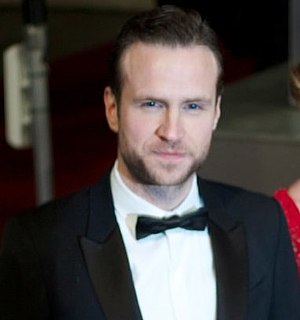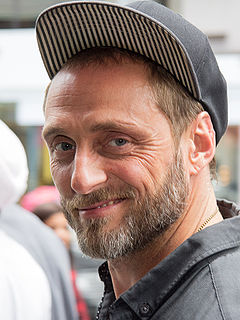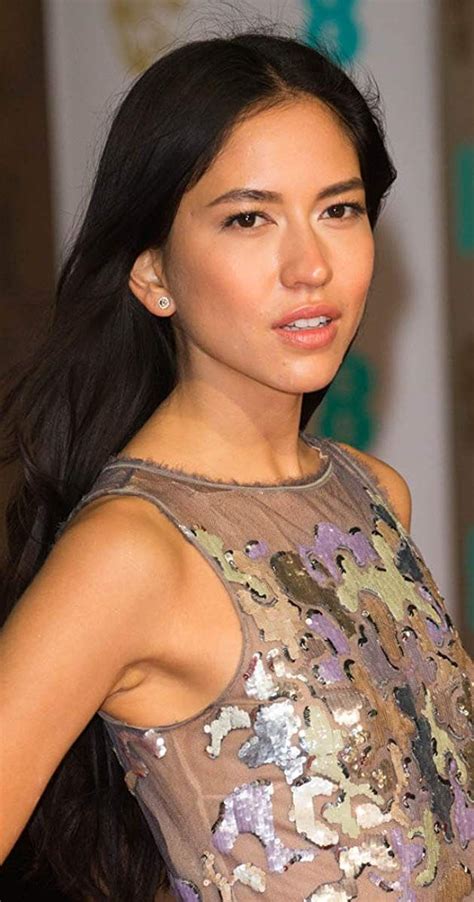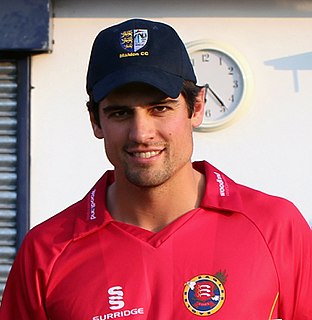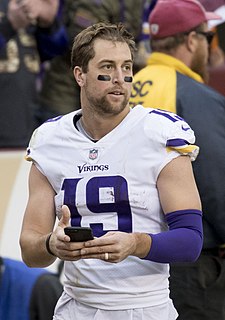A Quote by Aasif Mandvi
I was born in Mumbai, but I grew up in England, and then my adulthood has been in the States. I'm an American stuffed with an English person with an Indian person inside. I feel like those things kind of inform me in some way, which I think helps me as an actor.
Related Quotes
Everybody's born with some different thing at the core of their existence. And that thing, whatever it is, becomes like a heat source that runs each person from the inside. I have one too, of course. Like everybody else. But sometimes it gets out of hand. It swells or shrinks inside me, and it shakes me up. What I'd really like to do is find a way to communicate that feeling to another person.
I think one of the main differences between being an English actor and being an American actor is that we have things like the class system in England.I'm middle class. But I've got what some people might consider to be a working-class accent, so you've got those sorts of elements in this country to consider, which, in America, exist, but not necessarily in the same way.
I think I went through early years of my career sort of thinking, "Well, maybe I'm just not British enough." And I always remember my father saying to me, "Don't think you're English, because however English you feel, some Englishman is going to remind you that you're not." Now, for him it must have been a much more acute experience, because he immigrated to England. I was born there, so I kind of felt I had the right to assume that I was British, but it's true. The English are a very warm and welcoming people, but there's a streak in there that reminds you, occasionally.
I spent ten years in London; I trained there. But because I started in English, it kind of feels the most natural to me, to act in English, which is a strange thing. My language is Spanish; I grew up in Argentina. I speak to my family in Spanish, but if you were to ask me what language I connect with, it'd be English in some weird way.
When you talk with your mother you are one person; when you go to the bank or you're with your girlfriend you are another person, and that's the way I act. Then for me, it's important that I trust a director and as soon as I do, as soon as I feel comfortable with him, then I pull something out of myself that I didn't even know I had inside of me. That's what I like about this job.
I grew up bilingual, I grew up speaking Chinese in the home, Mandarin Chinese with my parents, and I learned English because I was born and raised in the U.S. That really gave me an edge. I understand that, from the experts, if you grew up bilingual, your brain kind of gets wired to accept a new language. It was a very serious deal because not only did I have to learn Russian to a high degree in order to function as a necessary member of the crew, but also I knew that the Russians that came over that made an effort and had some success in learning English, those were the folks we trusted.
Yeah, we were looking for a way to represent adulthood and the passing into adulthood. And I think, for me personally and a lot of the folks that I work with, childhood is kind of a sacred, special kind of point in time that has a real joy and purity to it. And we sort of long on a daily basis to reach back and kind of grab onto that in some way.
I do go back to Ireland, and I'll probably be doing a film in Ireland in January, and I guess that kind of keeps me classified as 'the Irish actor,' but the last four or five projects that I've been in are either American or English, so I don't feel terribly trapped in that. But sometimes, yeah, you would like to not be called 'the Irish actor.' You'd prefer to just be called 'the actor.'
In my time since moving to the United States, I've found that there is a dearth of great writing for black people. There are stories that depict us in a way that isn't cliched or niche, and that a white person, a Chinese person, an Indian person can watch and relate to. Those are the stories I want to be a part of telling.


